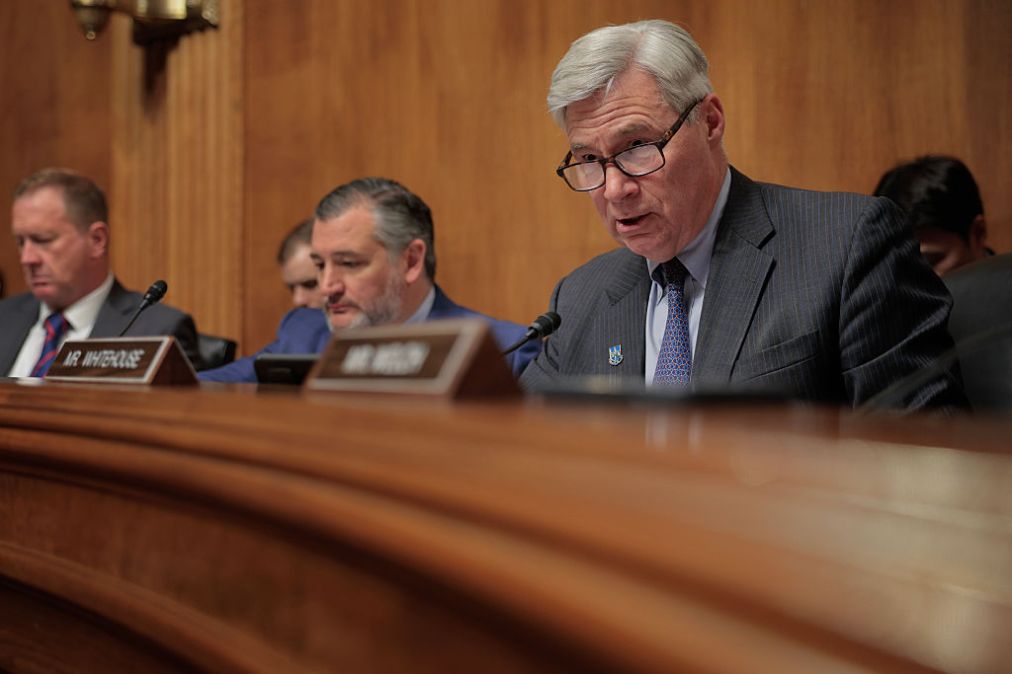Senate Democrats want total audit of DOGE access to agency systems

The digital footprint left by DOGE in agency computer systems and IT networks would be thoroughly examined under legislation introduced Wednesday by a trio of Senate Democrats.
The Pick Up After Your DOGE Act from Sens. Sheldon Whitehouse of Rhode Island, Ron Wyden of Oregon and Elizabeth Warren of Massachusetts would require the administrator of the Elon Musk-created tech collective to provide a full accounting to the U.S. comptroller general of all the agencies and IT systems that DOGE accessed. Those systems would then be subject to comprehensive performance and security audits.
“The DOGE-boys have weaseled their way into Americans’ most sensitive data systems, claiming to hunt ‘waste, fraud, and abuse,’ while actually creating waste, fraud, and abuse. They’re destroying Americans’ trust in once-reliable government systems and could be hawking your stolen data to their friends in Big Tech and AI,” Whitehouse said in a press release. “The Pick Up After Your DOGE Act protects seniors and all Americans by fixing any bugs or backdoors that DOGE may have purposefully or negligently created in Social Security, Medicare, and other highly sensitive government data systems.”
The audit would be conducted by the Government Accountability Office, which has been bombarded with congressional requests to probe DOGE’s agency IT dives since the beginning of the Trump administration. Comptroller General Gene Dodaro told senators in April that the watchdog had begun several audits, including looks at what DOGE had done with data in Treasury Department, Social Security Administration and Office of Personnel Management networks.
Dodaro didn’t share a timeline for when the GAO might start publishing its assessments, but he said the reports would be released as soon as they were ready, as opposed to waiting for all work to be finished.
“So we’ll have a better idea about what impact DOGE’s access has had on the data systems, and whether there’s been any information input into the system or taken out of the system,” he said at the time.
The press release announcing Democrats’ bill name-checked more than a dozen agencies where “DOGE employees with little training and few qualifications have gained access to sensitive data and computer systems,” including Treasury, SSA, the IRS, the General Services Administration, and the departments of Transportation, Energy, Health and Human Services, and Agriculture, among others.
“It could take years to undo the damage and hold DOGE officials fully accountable for any violations of federal law,” Wyden said in the release. “I’m glad to work with Senator Whitehouse on this bill to jumpstart the massive cleanup effort required to root out the damage DOGE has inflicted and shore up these systems.”
After the GAO has completed its audits, it would be required to deliver a report detailing all security vulnerabilities or bugs in software that was installed, created or altered by DOGE teams. The bill calls on the watchdog to begin its assessments at SSA, HHS, the Centers for Medicare and Medicaid Services, Treasury and the IRS. Any bugs or vulns that are flagged should be fixed by the agencies within 90 days.
Wednesday’s introduction of the Pick Up After Your DOGE Act follows a separate effort from the same three Senate Democrats last month centered specifically on SSA networks. The Protecting Seniors’ Data Act of 2025 also calls for a GAO audit of the agency’s systems, in addition to seeking answers on whether DOGE’s work in SSA IT violated the Privacy Act and the Federal Information Security Management Act.
In a speech on the Senate floor last month, Whitehouse sought unanimous consent on passing the bill, making the case that DOGE’s forays into SSA networks presented “lingering danger” if data was exfiltrated or if bugs were introduced.
“Or worst of all,” Whitehouse said, “perhaps they left backdoors so that Elon Musk or other folks who are interested in getting access to massive amounts of Americans’ data can find their way into Social Security’s data systems secretly.”
The Rhode Island Democrat’s measure was quickly blocked by GOP lawmakers.






